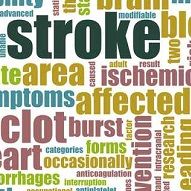Article
E-Records No Cure for Stroke Care
Author(s):
Electronic health records (EHRs) have been touted as a key tool toward improving the quality of health care. An analysis in the Journal of the American College of Cardiology shows that is not the case.

Electronic health records (EHRs) have been touted as a key tool toward improving the quality of health care.
But a study of outcomes and care in more than 600,000 patients in 1,236 US hospitals using the “Get With the Guidelines-Stroke” protocols showed EHR use was not associated with higher quality care or better clinical outcomes for these patients.
“Although EHRs may be necessary for an increasingly high-tech, transparent healthcare system, as currently implemented, they do not appear to be sufficient to improve outcomes for this important disease,” Karen Joynt, MD MPH and colleagues report in the Journal of the American College of Cardiology.
The idea of electronic records is partly to improve care by instituting guidelines, reducing medication errors.
Stroke is a condition is which this is “a particularly salient issue,” she wrote.
Joynt’s team looked at data from hospitals that had at least 8 key functionalities in their EHR systems, and had at least 25 stroke patients’ data recorded in those systems.
They then looked at outcomes such as length of stay, discharge home, and in-hospital mortality.
They also looked at whether patients’ care included a 8 currently tracked quality measures, such as getting intravenous tissue plasminogen activator within 3 hours, and other measures.
Patients in their study tended to be slightly younger at 72 and were more often men, non-white, uninsured or on Medicaid, than average.
They found no consisted relationships between the presence of EHRs and better quality of care or clinical outcomes for patients with ischemic stroke. They did find that patients admitted to hospitals with EHRS had slightly lower odds of having a prolonged hospital stay.
“Because EHR systems often create significant added burden for clinicians, further work to ensure that they are better integrated with care is critical,” the team concluded, particularly “given the ongoing federal push to have EHRs in all hospitals nationwide.”




